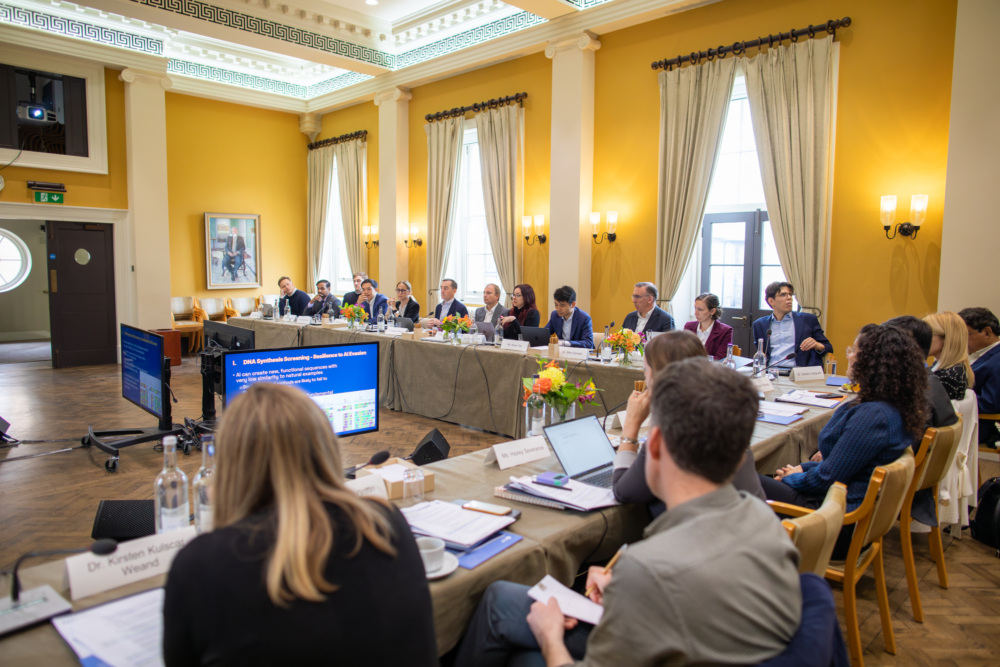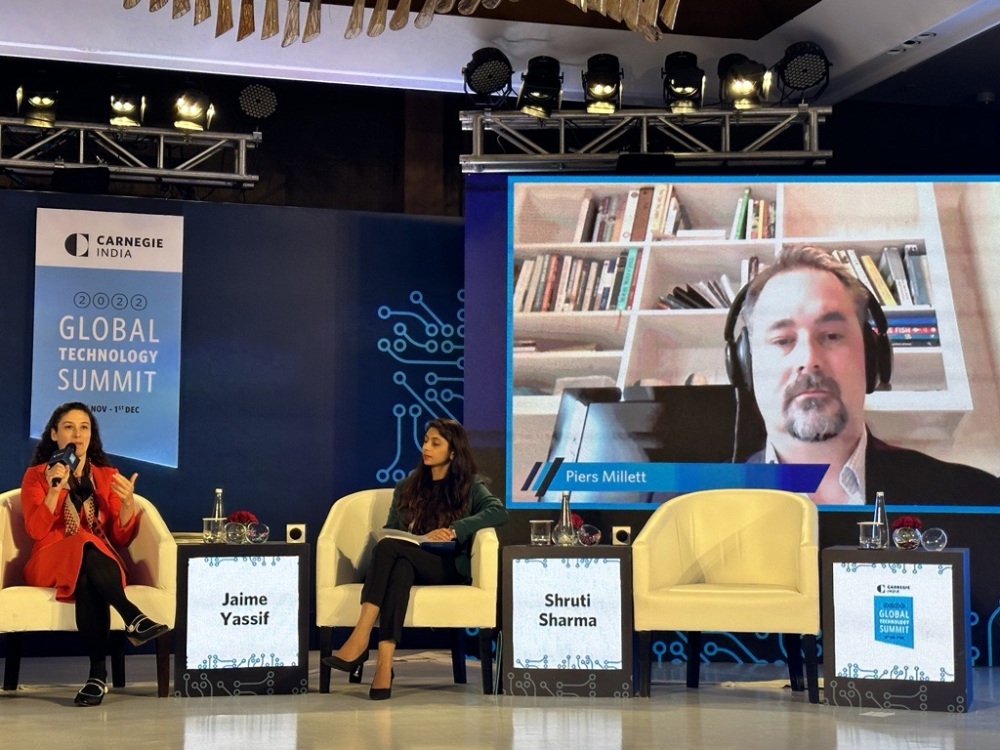Amid rapid advances at the intersection of artificial intelligence and the life sciences, NTI | bio and more than 25 leading experts took important steps toward creating a roadmap for safeguarding AI-enabled tools for engineering living systems from misuse. Meeting in Cambridge, United Kingdom in early June, participants in the Biosecurity Innovation and Risk Reduction Initiative (BIRRI) built on recommendations from NTI’s 2023 report, “The Convergence of Artificial Intelligence and the Life Sciences.”
The diverse group of experts advanced a comprehensive research agenda for safeguarding AI-bio capabilities—including large language models, biodesign tools, and automated science—based on a discussion paper that NTI shared with meeting participants. The objective of this research agenda is to create a roadmap to support a more strategic, comprehensive approach for protecting these capabilities from misuse.
Meeting participants also expressed support for NTI’s efforts to establish the AI-Bio Global Forum, which will serve as an international platform to convene diverse stakeholders to address pressing biosecurity risks associated with rapid advances in AI-bio capabilities. They discussed the path forward for the Forum, providing concrete recommendations for how to structure and operate it, in response to a white paper on the topic that NTI tabled at the meeting. Through in-depth working group discussions, participants also developed several concrete recommendations for pilot projects to safeguard AI-enabled biodesign tools, such as tools for designing proteins and other biological components and systems.
NTI | bio will continue to convene and shape the AI-Bio Global Forum and will work to advance key pilot projects for safeguarding AI-enabled bio design tools. Through BIRRI, NTI | bio will also continue to work with global partners to develop and advance a broader range of practical, innovative tools and governance approaches to reduce emerging biological risks associated with rapid technological advances.





